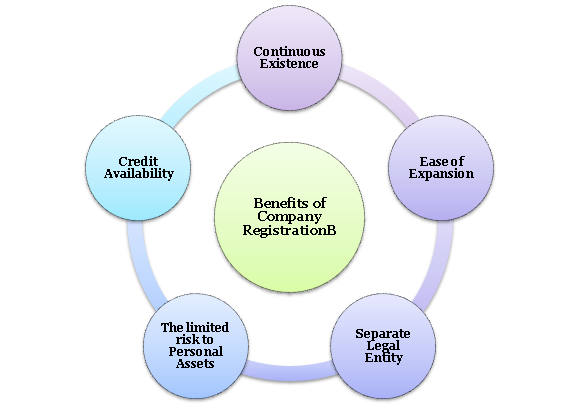Navigating the Facility World of Firm Formation: Insights and Approaches
Starting the journey of developing a company can be a complicated task, specifically in a landscape where laws are continuously developing, and the stakes are high. As business owners laid out to navigate the elaborate world of business formation, it becomes crucial to equip oneself with a deep understanding of the intricate subtleties that define the procedure. From choosing the most appropriate service structure to guaranteeing rigorous lawful compliance and devising efficient tax preparation methods, the course to producing an effective organization entity is riddled with complexities. Nevertheless, by untangling the layers of ins and outs and leveraging informative strategies, business owners can lead the way for a strong foundation that establishes the phase for future growth and sustainability.
Business Framework Choice
In the realm of firm formation, the crucial decision of picking the suitable business structure lays the structure for the entity's legal and functional structure. The selection of service framework significantly affects numerous facets of the company, consisting of tax, responsibility, administration control, and conformity requirements. Entrepreneurs need to thoroughly review the offered choices, such as single proprietorship, partnership, restricted responsibility company (LLC), or firm, to establish one of the most suitable structure that aligns with their service goals and conditions.
One typical framework is the single proprietorship, where the service and the owner are thought about the very same lawful entity. Recognizing the nuances of each service framework is important in making an educated decision that establishes a solid groundwork for the company's future success.
Legal Compliance Essentials
With the structure of a suitable business structure in place, ensuring lawful compliance fundamentals comes to be vital for protecting the entity's procedures and keeping regulative adherence. Legal conformity is critical for firms to run within the borders of the regulation and prevent possible penalties or legal issues.
To make sure legal compliance, firms ought to routinely evaluate and update their plans and procedures to reflect any kind of modifications in guidelines. It is additionally important to educate workers regarding compliance requirements and provide training to minimize risks. Looking for legal counsel or conformity specialists can better help business browse the complex lawful landscape and keep up to date with developing guidelines. By prioritizing legal conformity fundamentals, companies can develop a strong structure for sustainable development and lasting success.
Tax Planning Considerations

Additionally, tax preparation ought to incorporate methods to take advantage of offered tax obligation debts, reductions, and motivations. By purposefully timing revenue and expenses, companies can potentially reduce their taxed revenue and general tax problem. It is additionally crucial to remain notified concerning modifications in tax obligation laws that may impact the organization, adapting approaches as necessary to these details stay tax-efficient.
In addition, global tax planning considerations may develop for services running across borders, involving intricacies such as transfer pricing and international tax obligation credit histories - company formation. Seeking assistance from tax professionals can aid navigate these complexities and create a thorough tax plan tailored to the business's demands
Strategic Financial Administration
Reliable financial administration includes a thorough method to supervising a firm's monetary resources, investments, and overall monetary wellness. By developing comprehensive spending plans that line up with the firm's goals and objectives, businesses can designate resources effectively and track efficiency versus monetary targets.

One more critical element is cash flow monitoring. Keeping track of cash inflows Discover More Here and discharges, handling capital efficiently, and making sure enough liquidity are necessary for the everyday procedures and lasting practicality of a company. In addition, strategic monetary monitoring entails threat evaluation and reduction approaches. By recognizing economic threats such as market volatility, credit rating dangers, or regulatory modifications, companies can proactively execute steps to secure their economic stability.
Additionally, economic reporting and analysis play a crucial function in critical decision-making. By generating exact monetary records and conducting extensive evaluation, companies can gain valuable insights right into their economic efficiency, identify locations for improvement, and make notified critical choices that drive lasting development and profitability.
Development and Expansion Strategies
To drive a firm towards enhanced market presence and productivity, tactical growth and development techniques need to be carefully developed and implemented. One reliable strategy for growth is diversity, where a business goes into new markets or deals brand-new items or services to take advantage of and minimize dangers on emerging chances. It is vital for firms to carry out extensive market research study, financial evaluation, and threat analyses prior to embarking on any growth method to make sure sustainability and success.

Final Thought
To conclude, navigating the intricacies of firm formation requires mindful consideration of company structure, legal compliance, tax obligation planning, monetary monitoring, and growth methods. By strategically selecting the ideal organization framework, ensuring legal compliance, preparing for taxes, managing finances successfully, helpful resources and implementing development strategies, companies can set themselves up for success in the competitive organization atmosphere. It is essential for services to approach firm formation with a strategic and thorough frame of mind to attain lasting success.
In the world of company development, the important decision of choosing the ideal service structure lays the structure for the entity's functional and lawful structure. Business owners have to carefully assess the readily available choices, such as sole proprietorship, collaboration, limited liability firm (LLC), or corporation, to determine the most appropriate framework that straightens with their service objectives and scenarios.
By producing in-depth budgets that straighten with the business's objectives and goals, companies can designate sources successfully and track performance versus monetary targets.
In conclusion, navigating the complexities of business formation calls for cautious consideration of business structure, lawful conformity, tax obligation preparation, financial monitoring, and development methods. By purposefully choosing the best company framework, making sure legal conformity, preparing for tax obligations, handling financial resources effectively, and applying development strategies, firms can set themselves up for success in the competitive service atmosphere.